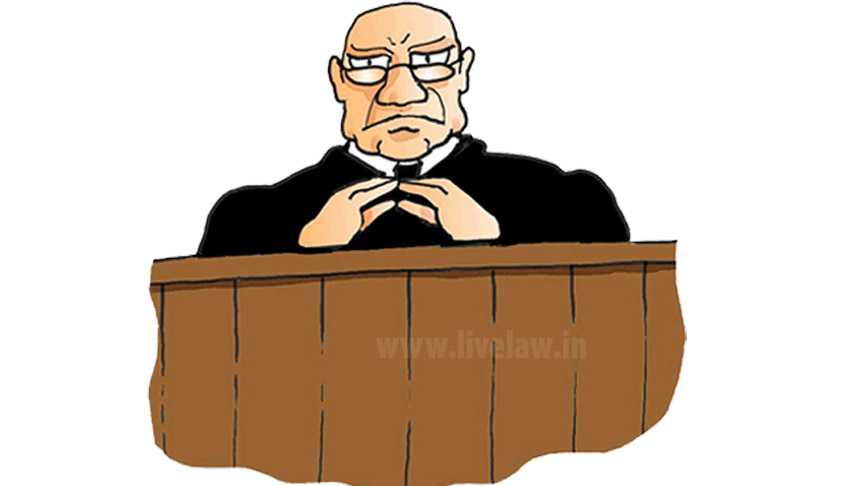The Trial Court ought to discuss the evidence on record in order to arrive at the conclusion as. Judgment passed by the Trial Court would extremely cryptic if there is no analysis of the evidence adduced by the parties at all. These were stated by High Court of Delhi, consisting Justice Prathiba M. Singh in the case of Ram Kishan vs. Satya Vir Singh [C.R.P. 51/2020] on 12.01.2022.
The facts of the case are that the Petitioner and Respondent No.2 are brothers and sons of Late Shri Maithali Ram and Late Smt. Devki Rani. The case of the Petitioner is that the Respondent No.1 – Late Shri Satyavir Singh was the tenant in the half portion of the property (hereinafter “suit property”), which is a residential property. Initially, vide order dated 23rd March, 2012, the Trial Court granted leave to defend to the tenant. Thereafter, the matter proceeded before the Trial Court. A detailed evidence was led on behalf of both the parties. Vide the final judgment, the Trial Court dismissed the petition on two primary grounds. First, the suit property identified by the Petitioner was located in Shakarpur, whereas Shakarpur and Mandawali Fazalpur are two different localities. Hence, the Petitioner has failed to prove the ownership of the suit property. Secondly, the Trial Court held that there is no landlord-tenant relationship between the parties.
The Counsel for the Petitioner submitted that the identity of the property was never in question in these proceedings. Reliance was placed upon a reply given by the Respondent No.1 to the legal notice issued by the Petitioner, wherein the Respondent No.1 clearly claimed ownership in the property located in Shakarpur, Shahdara, Delhi. It was further submitted that Respondent No.1 never challenged the identity of the property in the said reply. Thus, the Court could not have held that these are two separate properties, and that the ownership thereof has not been proved by the Petitioner. He further submits that the Trial Court has clearly gone beyond the mandate of Section 14(1)(e) of the DRC Act itself.
The Counsel for the Respondents submitted that the documents which have been placed on record including the General Power of Attorney (GPA), describes the seller Smt. Maya Devi from whom the Petitioner’s parents purchased the suit property as a resident of property. However, he submitted that the sale is of the property in Mandawali Fazalpur, Delhi. It was therefore, submitted that even the sale deed shows that the property which was being sold is at Mandawali Fazalpur, and not Shakarpur.
The High Court of Delhi held that the impugned judgment passed by the Trial Court is extremely cryptic as there is no analysis of the evidence adduced by the parties at all. This Court is of the opinion that if there was a dispute as to the identity of the suit property, the Trial Court ought to have discussed the evidence on record in order to arrive at the conclusion as to whether the two properties are the same, or not. Secondly, the Trial Court also arrived at the finding that there is no document to prove the existence of landlord-tenant relationship between the parties. This finding, as well, has been recorded in merely five lines of the impugned judgment without discussing the oral evidence or the evidence by way of affidavit filed by the parties. The property mentioned above can be easily described as B-7, Aruna Park, Shakarpur. It cannot, therefore, be conclusively stated that the identity of these two properties i.e., the suit property and the property sold as per the sale deed are different. The Court stated that, it has to be kept in mind that prior to urbanization of colonies in Delhi, no proper plot numbers were allotted. Thus, the identity of the property does not appear to have been in issue in the eviction petition. These documents ought to be examined in detail by the Trial Court, in order to arrive at a finding as to whether the Respondent No.1 has any right to retain the said property as also whether there is in fact any dispute as to the identity of the property at all. If there is no such dispute relating to the identity of the suit property, the Trial Court shall proceed in the matter, in accordance with law, under Section 14(1)(e) of the DRC Act. The impugned order was accordingly set aside. The Court direct the Trial Court to hear the final arguments once again on the basis of the pleadings and the evidence on record, and decide the matter, within six months.
Judgment reviewed by Shristi Suman. Read Judgment


